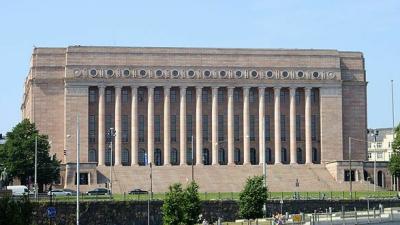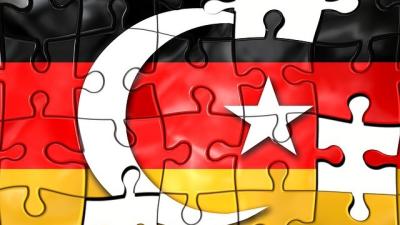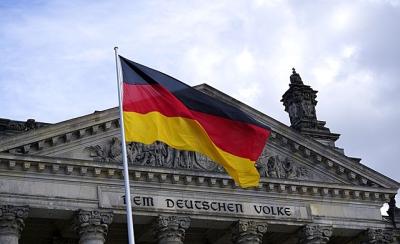Sanna Marin is history. This is not without irony: usually, it is the "woke" young generation that overturns monuments to great historical figures. Yet this time, with Marin, a left-wing icon only 37 years old is toppling. She was a figurehead even in the liberal camp. This is the first conclusion to be drawn after the Finnish election, in which the conservative parties won: a shining star of hope of the centre-left political camp has burnt out as quickly as she has flamed up.
Yet Marin did not lose the election in the strict sense. In fact, her social democratic party scored gains. But that cannot hide the signal effect. Young, female, left-wing - that may be a strong figure on paper, but apparently, the “zeitgeist” is changing again. Election winner Petteri Orpo is considered brittle and, at 53 years of age, is well on his way to being what is called an "old white man" in the jargon of the established media.
Whether and how a governing coalition will come about is still not in the bag. But the fact that within a short time, a representative of the European People's Party (EPP) is once again forming a coalition with a party on the right side of the political spectrum - as previously in Sweden and Italy - will likely raise eyebrows among some left-wing strategists. The firewall advocated by the left-wing media in particular now exists in only a few European countries. At some point, it could be the norm that the pariahs are allowed to sit at the round table and threaten leftist majorities - not only in Finland.
Finland may not be the politically or economically most important country in the European Union. But it is an example of certain developments. For the defeat of the young woke icon has had a great resonance in Germany, for example. Most journalists from the left-of-centre camp could hardly understand why she had been voted out of office. Yet there is a context to this development. The Danish Social Democrats have moved their party programme to the right on several issues. In Sweden, a centre-right government has been at the helm for several months. The Nordic countries, otherwise a place of longing for social democrats and a projection of Pippi Longstocking fantasies and Bullerbün idyll, are changing their political character.
This includes another detail. The “Finns Party” (formerly “True Finns”) has gained seven seats in parliament, the best result in the party's history. Remarkably, one of their first acts after the elections was to change the political group they belong to in the EU Parliament. They changed their old home, the “Identity and Democracy” (ID) Group, for the “European Conservatives and Reformers” (ECR).
One should not underestimate this signal, because it is a directional one (and for ID, a warning signal). For years, the parties to the right of the EPP have been working on a common solution to establish a large right-wing group in the EU Parliament. In the past, such talks failed not only because of the differences in content, but also because of the leadership claims of the various parties. More recently, the Ukraine war has led to new conflicts, which also run right through the ID parliamentary group itself.
In the last few months, the relationship with Russia has been a characteristic feature. Even before the Ukraine war, accusations were circulating that certain ID MPs had an affinity with Vladimir Putin. In the 2022 Italian election campaign, Matteo Salvini's “Lega” was even accused of having received funds from Moscow; accusations that after only a few days turned out to be just propaganda. Parts of the “Rassemblement National” are repeatedly accused of continuing to look for allies in the East rather than in the West.
The decision of the “Finns Party” to switch from the ID to the ECR has therefore not been made in a vacuum - especially in view of the Nordic country's accession to NATO - an accession that the party had supported. The ECR is considered to be clearly more NATO-affine than the ID. Its members are more clearly committed to transatlantic networking - and are not suspected of having secret sympathies for Russia. The “Estonian People's Party” is thus the last party from an Eastern European country (and thus potentially one threatened by Russia) to remain in the ID.
But the change represents another development. A few years ago, the ID had considerable tailwind, especially because of the Lega from Italy, which was bursting with strength and represented the real foundation of this parliamentary group - 25 of the group’s 62 MPs were Lega MPs. They were followed by the Rassemblement National (18) and the AfD (9). But the constellations of 2019 are not the constellations of 2023, and probably neither those of 2024, the year of the next parliamentary election. The “Lega” has lost a considerable number of votes in recent years, mainly to Giorgia Meloni's “Fratelli d'Italia”. It also remains questionable how well the “Rassemblement National” will do - and what the future holds for the AfD, which is internally divided.
Thus, this sidenote may possibly be a portent. Meloni's “Fratelli d'Italia” are likely to improve their result significantly next year, making a shift in weight between the two Italian right-wing parties - and thus the respective European groups - inevitable. The “Finns”, who currently have only two MPs, have a good chance of improving their result, as does the Spanish Vox. In the end, the question is whether ID will continue to exist in its minimised form after 2024, or whether a phenomenon similar to that of the Finns Party will occur. After a populist phase in the right-wing party society, a trend could then occur that will be more pro-American and more moderate in principle than in recent years.
Read also
The Question of Oriental Christians is a European Question
Europe will be Christian again, or it will no longer be at all. How Christian it truly is, is also shown by how much it stands by its fellow Christians. In the case of Christianity in the Orient, the very region of origin of the religion that had made Europe what it was and what it is now - things look bleak.
Marco Gallina
The German migration policy does not want to grow up - yet
It is not only regarding energy policy that Germany remains in a Peter Pan mode for the time being: several events this month have revealed that Berlin, despite its immense burdens, is reluctant to push through a more pragmatic and far-sighted immigration policy.
Marco Gallina
Country Report: Germany Faces Loss of Prosperity
Despite the economic downturn, citizens are threatened with new taxes and hidden levies, for example through a reform of the heating law or the CO2 tax.
Marco Gallina
A delicate smell of Stalinism in German air
German Federal Minister of the Interior is considered Minister of the Constitution. He is therefore also in charge of the Federal Office for the Protection of the Constitution (Verfassungsschutz), the federal office responsible for collecting and evaluating information on actions efforts against the free basic order.














Comments (0)